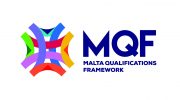Quality Policies
The academic degree title has received accreditation from theMalta Further and Higher Education Authority (MFHEA), but it is important to specify that obtaining the degree does not automatically guarantee professional recognition. For this additional step, it is necessary to apply for registration with the Council for Professional Complementary to Medicine (CPCM) of Malta.
Malta ICOM Educatioanl (MIE) is committed to the establishment and enhancement of high academic standards within its programmes. The College’s systems and procedures for quality enhancement aim to operate in a positive, self-critical and supportive environment to promote high academic standards. It is expected that all members of the College accept ownership of those standards at whatever appropriate level responsibility has been developed to them.
MIE will endeavour to ensure, wherever provision is delivered, that its procedures and practices are informed by the following principles:
-
- The systems and procedures are fit for purpose. They are transparent and responsive to changing contexts;
-
- That academic standards are the responsibility of the entire College community;
-
- That educational provision and procedures are subject to monitoring and evaluation as part of a commitment to continuous improvement;
-
- That educational provision and procedures should be informed by the views of students and other stakeholders;
-
- That learning and teaching activities, including quality assurance processes should be supported by relevant staff development;
-
- That high-quality provision and standards of service are supported by transparent and accessible procedures for the resolution of academic appeals and complaints;
-
- That full recognition is made of the external quality reference points including the relevant statutory professional body and the regulating agency.
The responsibility for interpretation and implementation of the quality strategy is shared between the teaching faculty and the central administrative unit through the formal committee structure.
Policies:

